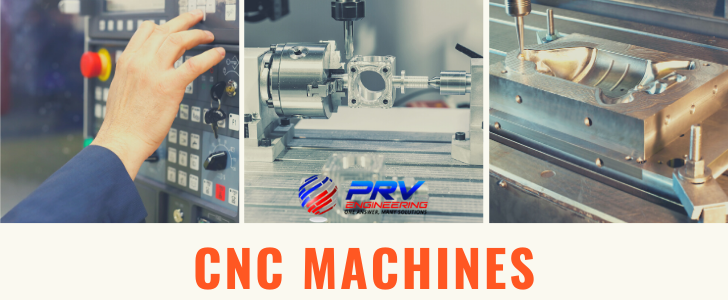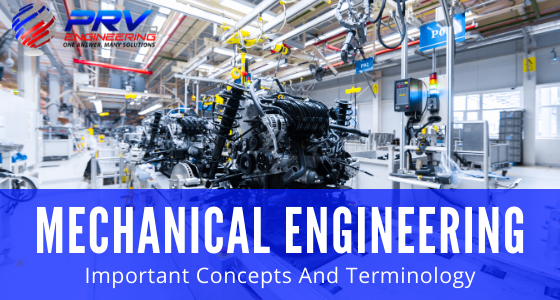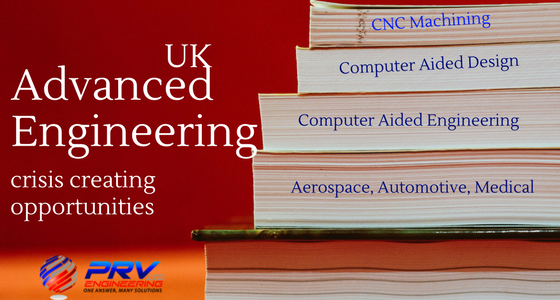In a previous article, we looked closer at the significant skills gap in UK manufacturing that threatens the country’s growth and innovation. As we navigate this challenge, manufacturing apprenticeships emerge as a key solution, providing a practical and effective pathway to cultivate the next generation of talent. This article highlights how apprenticeships, alongside T Levels, are being harnessed to address the skills gap in manufacturing, highlighting success stories and guiding businesses on how to get involved.
Many custom fabrication projects are complex which may require a high level of expertise and attention to detail. From research and design to the final product, there are many variables to consider while keeping mind that even the smallest mistakes can have a significant impact on the end result. In this article, we will discuss 8 most common mistakes to avoid in custom fabrication projects with expert advice on how to ensure a successful outcome.
There are many engineering fields of study as it’s a broad subject with several disciplines and interesting ways to specialise. The list is extensive and includes civil engineering, aerospace and automotive engineering, biomedical and materials science engineering among many others.
Not too long ago, the categories were limited to civil, electrical, mechanical and chemical but new subsets are emerging as technology continues to evolve. To find out which engineering fields of study might be best for you, here is a summary that could shed some light and open a few doors.
CNC machines, or Computer Numerically Controlled machining, refers to a manufacturing process involving pre-programmed computer software. This dictates the movement of CNC machines which results in several major benefits over other machining methods. Compared to manual processes, CNC machining can help tremendously with improved accuracy and efficiency, faster production, better safety and cost savings.
Today, many sectors in the economy rely on CNC machining including aerospace, automotive, medical manufacturing, construction and woodworking. It has revolutionised manufacturing as other industries have also caught on from window and door manufacturers to those specialising in household appliances and electronics. In this article, you’ll discover the main advantages (and some drawbacks) of CNC machines.
Automating The Manufacturing Process With CNC Machines
Looking back at the history of manufacturing, the early days mostly involved hard, intensive labour. That all changed with the introduction of certain technologies with CNC machining at the top of the list. It has automated most of the manufacturing process that has resulted in less manual labour and increased efficiency which means a reduction in cost.
Thanks to advanced computer software transferring the required data to a CNC machine, it does all the work automatically with very limited input from a person. CNC machining has become more versatile in recent years as some can now even have additional axis. This has increased the types of machines that can effectively manufacture much smaller and more intricate parts with precision.
Recommended: ‘5 Axis Machining In Modern Engineering’
How Does CNC Machining Work?
We touched on the process earlier but here is a more detailed overview. CNC machines work through a numerically controlled computer program using a CNC machining language (‘G-code’). This controls various aspects of the process such as the feed rate, coordination, location and speed. The computer software controls the exact positioning and velocity far better than a human can which is why CNC machining is ideal for manufacturing metal and plastic parts.
The first step is to create a drawing using 2D or 3D CAD software and enter a computer code that the machine will understand. From there, technicians load the program but before any form of machining takes place, a human operator tests everything. This is referred to as a trial run and if better known as “cutting air”. Such a trial run is crucial in the manufacturing process as any mistake regarding speed or tool positioning can lead to broken parts or damaged machines which is unnecessary and avoidable.
Why Manufacturers Prefer CNC Machines
CNC machining has become increasingly popular as it greatly streamlines the manufacturing process. Considering the numerous advantages of CNC machines mean operator-required equipment been replaced in many cases. Regardless of the few disadvantages, manufacturers across all sectors still highly rate CNC machining for fabrication and manufacturing applications. Here are some of the main benefits for your business, manufacturing processes and staff.
CNC Machines Increase Production Speed And Efficiency
CNC machines allow manufacturers to work at a much faster pace while delivering the same high standard of products. Whilst other manufacturing methods require additional resources, CNC machining can do the job without adding to the overheads.
CNC machines can work continuously overnight, weekends and holidays. They will only be stopped for maintenance, repairs or to input a new project. These machines can produce multiple orders much faster than traditional labour-intensive methods. CNC machines require less staff so that means saving time and money on training.
Computer Control Means Fewer Human Errors And Less Material Waste
It’s only natural that people make mistakes but the risk is massively reduced with CNC machining as fewer people are involved in the manufacturing process. Remember, the computer is programmed to do something specific with tight tolerances and specific requirements and will perform as the software dictates no matter what.
It certainly helps that when operators enter the design parameters and specifications that the machine will consistently execute repetitive processes. Everything works according to scale and specifications which leaves almost no room for material waste. This has the potential to help you save big on costs and potential rework time.
CNC Machines Are Safer To Operate
Aside from operators entering the code and maintaining the machines, the process is entirely automated. That means operators don’t have to be anywhere near the cutting tools. This has resulted in decreased occupational health and safety accidents and that is a massive bonus for business and staff. Indeed, operating a CNC machine may not be as simple as using a cordless drill but they are relatively simple to use with some training and practice.
Allows For Advanced Fabrication In A Future-Ready World
CNC plays a pivotal role when it comes to fabrication as several operations are involved which these machines can perform. This includes welding sheets of metal, shearing, punching holes and flame cutting. Due to the incredible precision that CNC machines offer, they can produce extremely complex shapes that manual machines would not be able to replicate. Due to the operator programming the machine, they are highly flexible and should be your first choice.
Considering CNC machines are all around us in almost every industry, implementing it into your business will help you prepare for the future. If you think how much technology has changed in just the last 10 years, the manufacturing sector is looking pretty sharp with CNC in its corner. With the advanced capabilities, you can keep up with all the latest trends, changes in design, building codes and any other standards.
Disadvantages Of CNC Machines
CNC machines are typically more expensive and do require a larger initial investment than manual machines. However, as this technology becomes more widely used and the accepted standard, supply will increase and that means costs could gradually go down.
There is also an element of skills loss as the demand for manual machine operators decreases. This results in fewer new students having to adopt specific skills that may eventually lead to the total loss of long-preserved skills.
At the same time, unemployment is always a big talking point when it comes to any form of automation. The good news is that even though CNC machines require fewer people, there is a growing demand for software engineers and mechanical engineers. If companies and universities adopt and provide the necessary education and training, the skills gap may be closed somewhat in the manufacturing industry.
CNC Machining At PRV Engineering
CNC machines are incredibly versatile and you’ll know how impressive they can be once you see them in action. They serve a multitude of industries with great success, especially in the aerospace sector where they favour five-axis machining which enables them to manage hard-to-cut materials like Inconel.
For reliable and effective CNC machining services, contact PRV Engineering, one of the leading engineering service providers in the UK and Europe. We have state-of-the-art CNC machines to serve our clients from various industries. Some include food and chemical processing, pharmaceutical, railway, military, defence, automotive and aerospace.
Stay up to date on all the latest in engineering, manufacturing and technology by following our blog. You can also join the conversation on Twitter, Facebook, YouTube or LinkedIn using the hashtag #PRVtech.
Mechanical engineering is one of the oldest and broadest disciplines that combines engineering physics and mathematical principles with materials science. It involves the design, analysis, manufacture and maintenance of mechanical systems.
The fundamentals of mechanical engineering go back thousands of years, emerging as a field during the Industrial Revolution in Europe. It continued to evolve and, today, mechanical engineers are involved in areas such as composites, mechatronics, and nanotechnology.
Engineering in any sense of the word is a rewarding and exciting career that plays a vital role within the UK economy. Mechanical engineering is all about designing, developing, testing and manufacturing materials for a wide variety of industries and applications.
A Mechanical Engineer is responsible for anything from building engine components and maintaining industrial equipment to servicing robotic machinery. In this article, we briefly cover aspects of mechanical engineering along with essential tips for graduates seeking a career within the industry.
UK Manufacturing has continued its upward trend and toward the end of 2017, was named the eighth largest manufacturer by output in the world. This came less than one year after claiming ninth spot. Reports from EEF and Santander shows the nation’s annual output is worth nearly $250bn. If this current growth continues, UK Manufacturing could be in the top five as early as 2020.
Engineers are always in high demand and none more so than in advanced engineering. Looking to the future, the industry will need about 186 000 engineers by 2024. Another report, according to The Telegraph, suggests the UK is grossly lacking skilled engineers and would need 1.8 million new engineers and technicians by 2025.
Whichever way you look at it, these are big numbers to swallow. Engineering is not only central to ensure economic growth, it plays a vital role in global challenges. Among these are climate change, food security, health and safety, biodiversity, population and water security. Adding to the increased number of opportunities, engineering can yield significant financial reward.
Today Sir James Dyson announced that he is to open his own institute to train engineers stating that the UK needs another million engineers in software, hardware and electronics by 2020 if UK companies are to remain competitive.
The institute, based in Malmesbury, Wiltshire will open in the Autumn of 2017 with an initial intake of 25 students and will offer a four year engineering degree in partnership with the University of Warwick. Students will be paid a salary while studying and will not pay tuition fees, but most importantly in the world of engineering, students will work on live projects alongside mentors and research staff allowing them to get hands on, real life experience.
At the end of April the Bloodhound Education team, combined with the BBC micro:bit project launched a huge competition for secondary school children; The Model Rocket Car Challenge.
Supported by the army and Microsoft among others, and forming part of the Guinness World record rocket car challenge, school teams are challenged to make foam rocket cars and race them through approved tracks; the aim of course, to be the fastest!
The races are being organised through the network of Bloodhound hubs and will see a series of regional heats that will lead up to a final at the end of June at the Santa Pod Raceway in Northamptonshire. The winners will spend a day watching Bloodhound test runs as well as securing a financial prize for their school.












Recent Comments